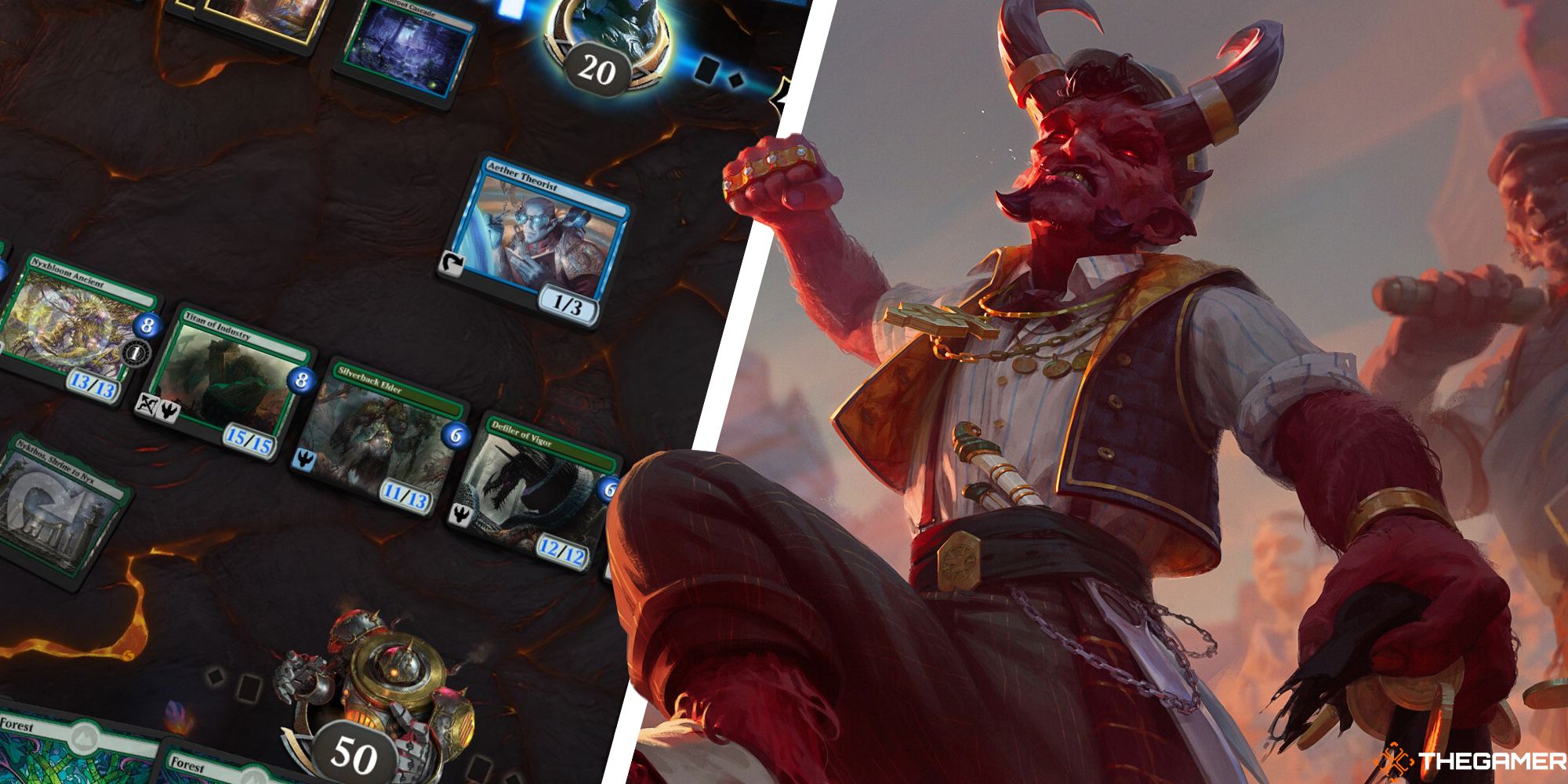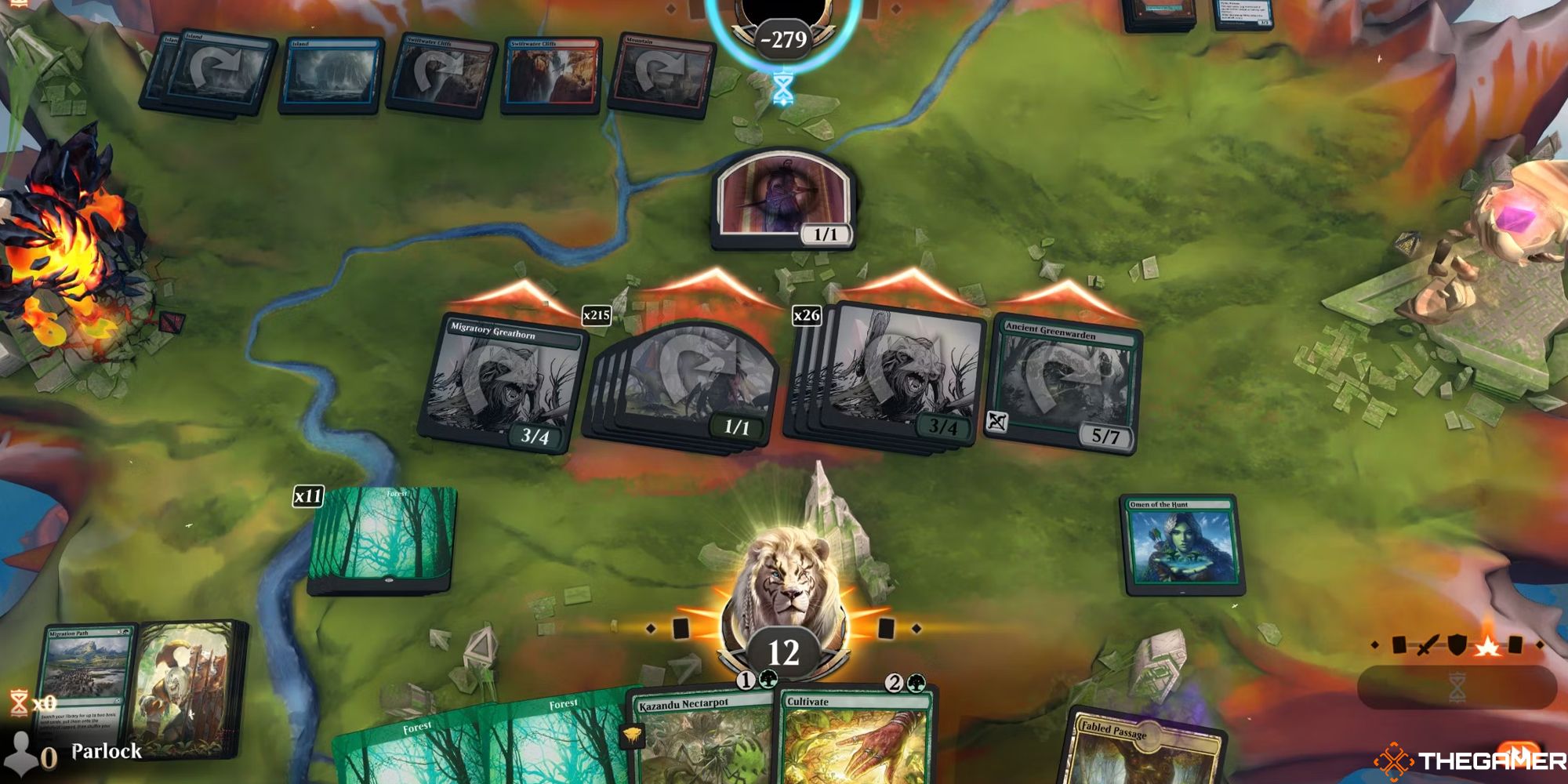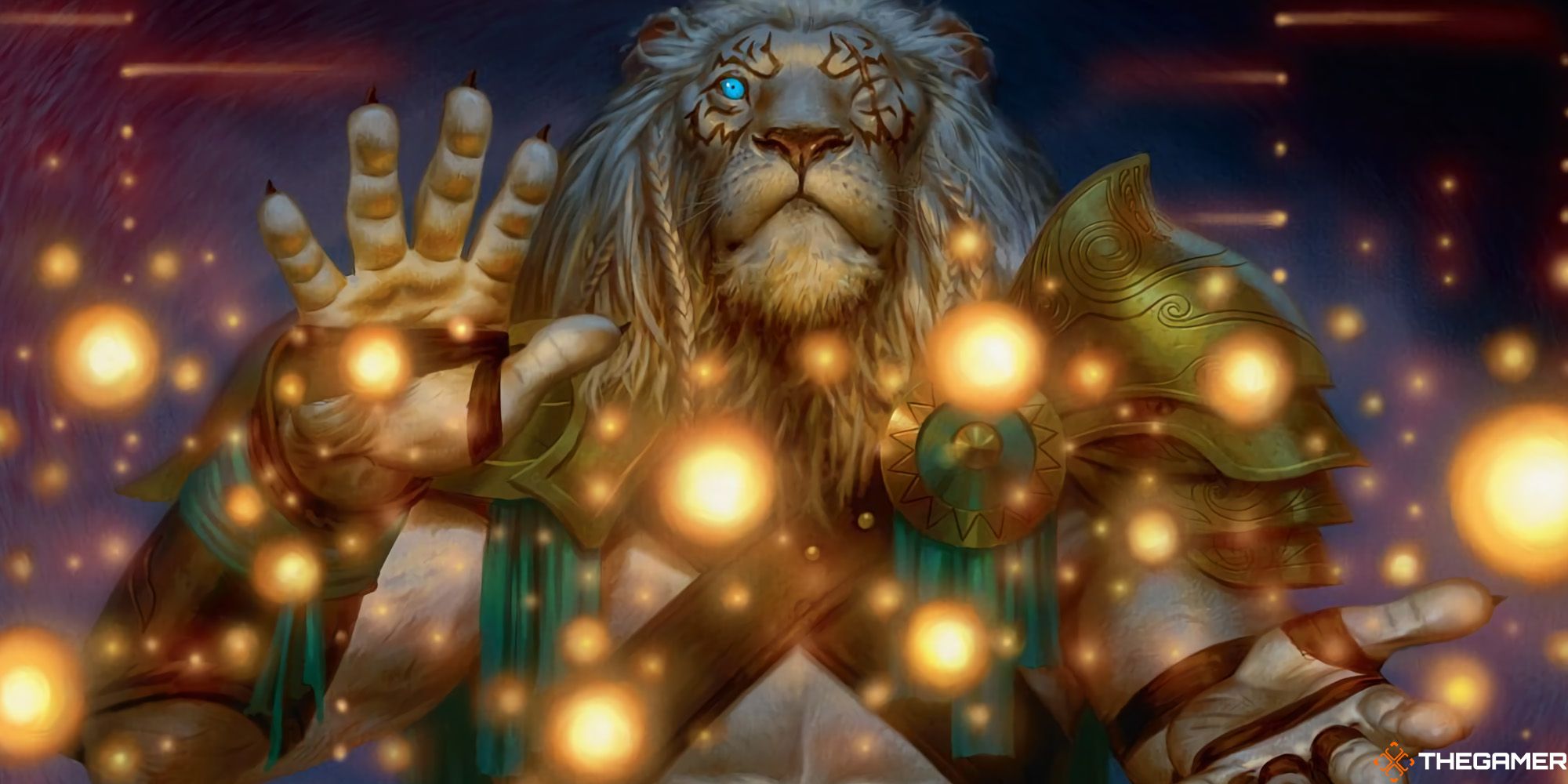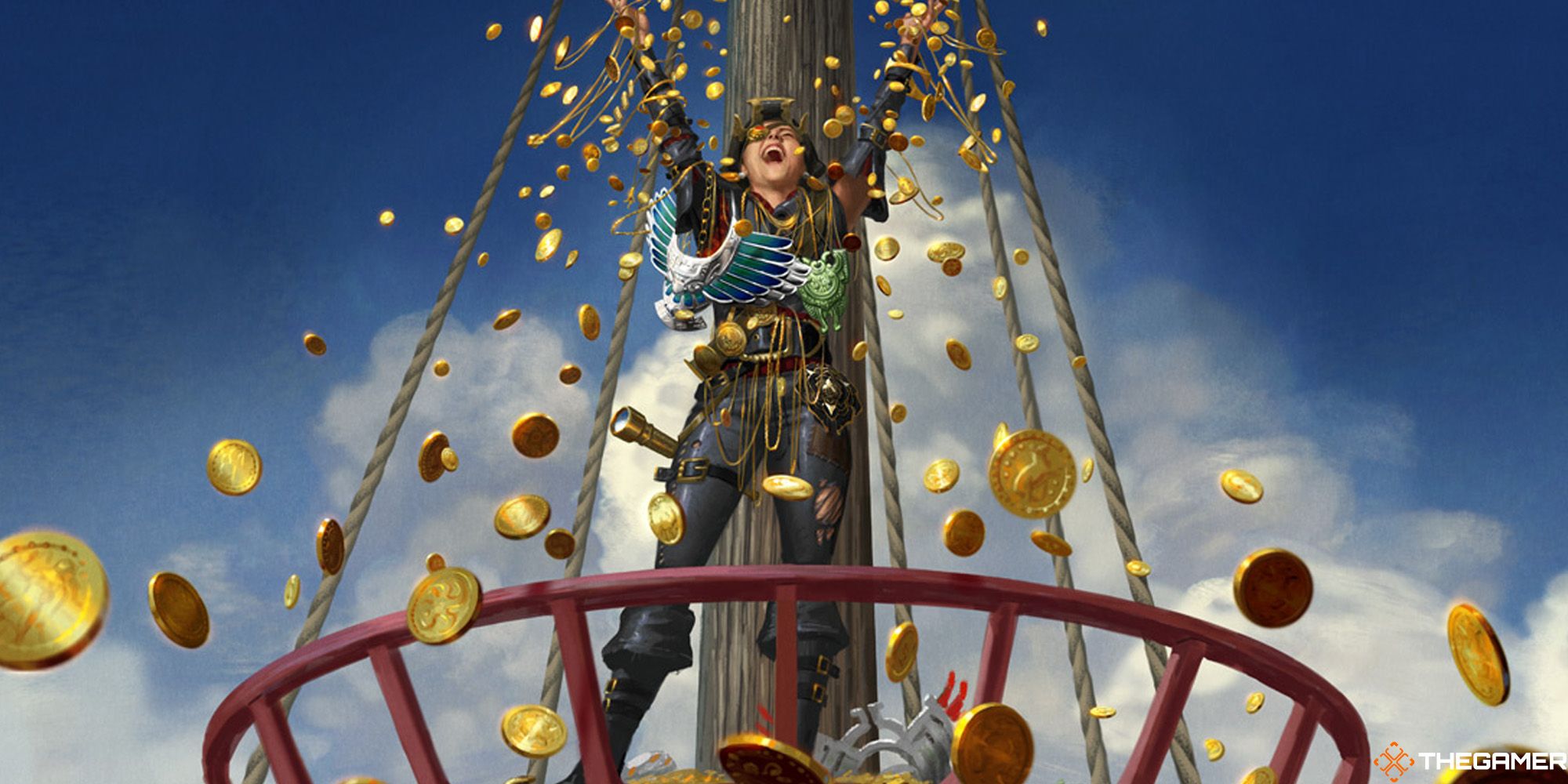Magic: The Gathering is the trading card game that kicked off the entire genre. From its first set in 1993, it’s offered gripping tactical gameplay, near-infinite deckbuilding opportunities, and some of the best art and worldbuilding in tabletop gaming. In 2019, Wizards of the Coast launched Magic: The Gathering Arena, a user-friendly, frequently-updated way to play Magic on digital devices.
Since then, Arena has gone on to become one of the biggest aspects of Magic. It was the home of the game during the pandemic, exclusive sets are made specifically for it that never see print, and it’s even supplanted tabletop as the go-to place to play Magic’s primary format, Standard. But is Arena worth your time, whether it’s as a newcomer to the game, or a veteran making the leap to digital?
Review
Magic: The Gathering Arena is a very different game from when it launched in 2019, but it still channels the very best of the tabletop game into a digital medium.
In particular, the additions of both the Jump In! and Explorer formats have been big wins for the game. Jump In! is a fantastic way for newcomers to get into the game, as I said in a feature praising the format last year.
It might not have the history of Standard or the shiny, digital newness of Historic and Alchemy, but Jump In! is a great example of what Wizards should be doing more of. It is cheap to play, easy to understand, and a perfect way to progress into the more complex formats.
In another feature, I discussed how Explorer – which allows you to use almost any card released for Arena – revitalised my love of the game, saying “I've been jamming with my old Simic Kicker and mono-white Lifegain decks and having an absolute blast, while also dreaming up new decks I can try knowing I already have the cards for them.”
However, monetisation for Arena has taken a nosedive, relying on ‘wildcards’ to craft cards that can either be expensive to buy, or require opening hundreds of booster packs to collect. In particular, the introduction of the Alchemy format, a digital-only format that can ‘rebalance’ cards without refunding owners who bought them for their decks, and has its own sets released between the major tabletop releases, caused a lot of upset.
Combine this lack of refunds with a constant onslaught of new set releases, which is only exasperated further with Alchemy's exclusive supplementary sets now introducing even more cards with every new release, and the end result is players who simply can't afford to play Magic Arena the way they used to.
Though there have been moves to correct this, such as the introduction of ‘Mythic packs’ and ‘Golden packs’ that included guaranteed mythic rare cards, as I pointed out in a feature last year, “when players tell you they're being expected to buy too many boosters, your answer probably shouldn't be ‘here's another booster you can pay even more for’.”
All in all, while some of the naïve enthusiasm of 2019 has dulled over the years, underneath the wonky monetisation is still one of the best card games ever made. If you can tolerate the restrictions of playing for free, or are willing to pay to get around them, you’re arguably in for a better now than you were back then.
Time Expenditure
There’s no way to ‘beat’ Magic: The Gathering Arena, and it doesn’t have a concrete ending. You can spend hundreds of hours perfecting your decks, climbing the ladders, and participating in drafts, and with so many new sets launching each year, there’s a good chance you’ll never see everything it has to offer.
Games of Magic: The Gathering can be incredibly quick – five minutes or less – or they can stretch out into multiple-hour affairs. Because of the huge variety of decks people play, Arena can be a tough game to plan your time around.
One way you can measure the time expenditure of Arena is in how long it takes to complete the game’s equivalent of a Battle Pass, the Mastery Pass. Each level of the Mastery Pass gives its own rewards, including booster packs, cosmetics, and in-game currency, and requires you to earn 1000 Mastery XP.
By completing the daily quests, you can safely complete most Mastery Passes with around one hour of playtime per day. If you want to do it quicker, you can also go for things like the Daily Win quest, which gives you much less XP, and can take multiple hours to complete if you’re unlucky.
With all this in mind, you can usually expect to complete a season’s Mastery Pass in approximately 50 – 60 hours of play. Seasons last roughly two months, giving you plenty of time to grind out the pass, while also experimenting with other decks, formats, and things to do.
Other in-game activities, such as drafting (making decks with a pool of cards shared between players) or playing in events may take more time, with drafts taking anywhere from an hour to maybe two or even three, depending on how successful you are.
Cost
As a free-to-play game, you can safely play Magic: The Gathering Arena without paying a penny. The game is relatively generous in how many free codes, cards, and decks it gives you too, allowing you to make viable decks straight away.
However, if you want to move into the more competitive levels of play, you will need to spend money. This includes the Mastery Pass, booster packs, and access to draft events, all of which cost gems. 3400 gems, which is enough to buy the Mastery Pass with a few gems left over for buying small cosmetics, or maybe a booster pack,, costs $19.99.
Those who enjoy drafting may find Arena more expensive than others, as most draft events require you to buy into them with either in-game gold or gems. Though you could earn what you paid back by winning, this is not reliable, and there is also a chance you could immediately crash out of a draft and leave with much less than you paid.
What Players Are Saying
A Reassuring Introduction To An Overwhelming Game - Branden Lizardi
Magic: The Gathering can be a pretty complex game, with endless cards and seemingly endless strategies. Arena, however, provides a simple and easy-to-follow entryway for anyone curious about trying it out but is overwhelmed by card suggestions and gameplay rules. If you're wanting to get started, it certainly feels like a good place to begin.
A Magical Experience For Veterans And Beginners - James Kennedy
Magic The Gathering is unquestionably an intimidating game for beginners. However, if you are looking to get more acquainted with the world of Magic, there may not be a better place than Arena. It has a number of single-player battles that help gradually teach you the intricacies of the game. And if you are an old hand, then Magic: The Gathering Arena features a visually stimulating way to play Magic from the comfort of your own home. Even the monetization seems alarmingly player-friendly: especially for something associated with Wizards of the Coast. Arena is just a fantastic experience. And with it coming to consoles this year, it is one that is about to be more accessible than ever!




